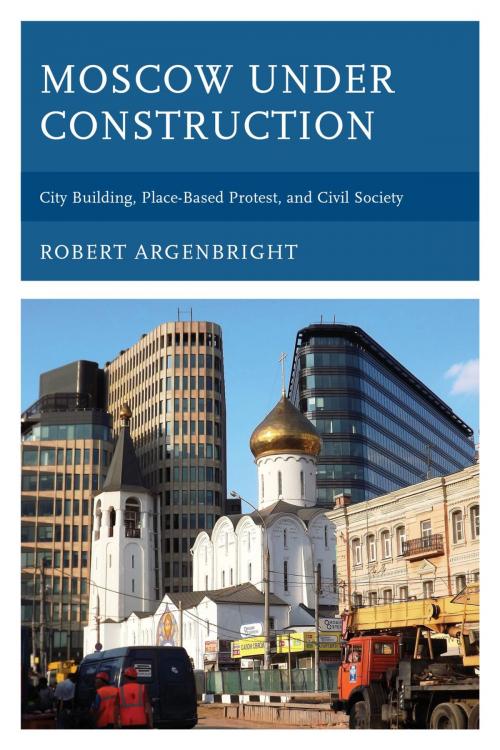Moscow under Construction
City Building, Place-Based Protest, and Civil Society
Nonfiction, Social & Cultural Studies, Political Science, Politics, City Planning & Urban Development, History, Asian, Russia, Government, Public Policy| Author: | Robert Argenbright | ISBN: | 9781498522038 |
| Publisher: | Lexington Books | Publication: | July 26, 2016 |
| Imprint: | Lexington Books | Language: | English |
| Author: | Robert Argenbright |
| ISBN: | 9781498522038 |
| Publisher: | Lexington Books |
| Publication: | July 26, 2016 |
| Imprint: | Lexington Books |
| Language: | English |
Moscow under Construction explores the growth of place-based opposition to destructive redevelopment practices in Moscow and the consequent changes in city’s governance regime. The groups of citizens discussed in this study have struggled to defend homes, neighborhoods, heritage buildings, and historic districts, and in the process they’ve built up civil society and advanced democratization. Heritage preservationists and other aggrieved Muscovites have organized themselves into “initiative groups” and “social associations” to protect specific places in the city and to influence the planning process, and these place-defenders have become more confident and capable as citizens. Their activities also have caused Moscow’s city government to shift along the political spectrum away from highly authoritarian and opaque habits of ruling toward a more open and collaborative governance regime.
Moscow under Construction explores the growth of place-based opposition to destructive redevelopment practices in Moscow and the consequent changes in city’s governance regime. The groups of citizens discussed in this study have struggled to defend homes, neighborhoods, heritage buildings, and historic districts, and in the process they’ve built up civil society and advanced democratization. Heritage preservationists and other aggrieved Muscovites have organized themselves into “initiative groups” and “social associations” to protect specific places in the city and to influence the planning process, and these place-defenders have become more confident and capable as citizens. Their activities also have caused Moscow’s city government to shift along the political spectrum away from highly authoritarian and opaque habits of ruling toward a more open and collaborative governance regime.















